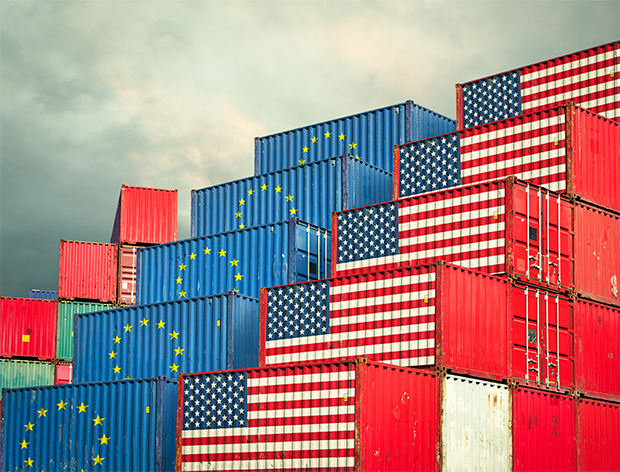Donald Trump’s nomination of Kimberly Reed for president of US Exim last week could be a crucial step in restoring its full lending powers.
But after being caught in a political deadlock since 2015, US Exim will face tougher competition if and when it starts working normally again.
According to recent figures, US Exim has a backlog of almost US$42bn-worth of deals waiting to be approved – US$21bn in the power sector, US$14bn in oil and gas, US$3.6bn in transportation including aircraft, US$2bn in infrastructure projects and US$1.3bn in technology, including satellites.
That’s the result of the export credit agency (ECA) being unable to approve loans and guarantees above US$10mn for three years, caused by the senate’s delay in confirming at least three out of the five board members it needs for full governance.
But there seems to be progress in giving US Exim back its approval power. Reed, who worked at the treasury department in George W Bush’s administration, was among the four people that Trump nominated for board slots in 2017, and who were approved by the Senate Banking Committee in December.
At that time, Reed was nominated to serve as first vice-president. However, the meeting saw the committee reject Trump’s nominee to head the bank, former Republican representative Scott Garrett.
Garrett is a long-term critic of the ECA and attempted to shut it down while a member of congress, by refusing to renew its charter.
The four nominees are still pending confirmation by the full senate, and no date has been scheduled for the vote yet.
However, US manufacturers dependent on US Exim loans and guarantees are hopeful that the move will soon bring the agency back to normal.
Commenting on the nomination, Tim Keating, Boeing’s executive vice-president of government operations, for one, says that restoring US Exim to full strength “is the best thing Washington can do right now to grow our economy through exports, shrink our trade deficits, and level the playing field so American workers can win”.
But the ECA will return to a different environment than three years ago: in its absence, other private sector players have been coming up with alternative solutions to support US companies, as reported by GTR in its upcoming Q3 magazine, which will be released next week.
Last year, for example, Boeing and Marsh launched an insurance solution for airlines needing to finance aircraft purchases, which to date has been mandated on 17 aircraft financings and is bidding for another 50.
Meanwhile, other ECAs have become more flexible and creative to snap up some of the unsupported US contracts, particularly for large manufacturers who have started to leverage their global supply chains to receive export support from other countries.
Boeing, for example, is working with various ECAs, including Sace of Italy and UK Export Finance (UKEF) on further transactions for 2018. Earlier this year, UKEF provided credit for the export of two Boeing 787- 9 aircraft to Norwegian Air Shuttle on the basis that they feature Rolls-Royce engines manufactured in the UK, meeting the ECA’s 20% local content requirement.
“When US Exim became unavailable to us we looked at our other partners, other manufacturers in our supply chain, and we said to these ECAs: ‘Can you support financing for the commercial aircraft products that your suppliers in country build parts for?’ and they said: ‘Absolutely’,” Boeing Capital president Tim Myers tells GTR.
Sace, too, has been particularly active in leveraging the opportunity of the US Exim freeze to help Italian exporters gain market share. In addition to significant agreements signed with both Boeing and GE, it seemingly plans to continue to grow its collaboration with American corporates.
While the capacity offered by foreign peers is not enough to replace the support US Exim used to provide, it will have an impact on US Exim’s business going forward. Those companies who have successfully diversified their funding pool could be reluctant to rely entirely on US Exim in the future, considering its vulnerability to political machinations.
Nevertheless, the reemergence of US Exim will be good news for US exporters, who will likely see more availability of trade finance, given that many commercial banks, particularly in the US, have been reluctant to provide export financing without ECA support.
Clarine Stenfert, JP Morgan’s head of nonaviation export finance, explains to GTR: “US Exim has always been relevant and will be relevant again if it opens up. The US credit rating is strong, so pricing is competitive. Also, US banks look at private risk insurance (PRI) in a different way to European institutions. PRI is seen as less beneficial than ECA cover – it has to do with the capital and regulatory treatment.”







